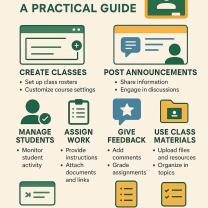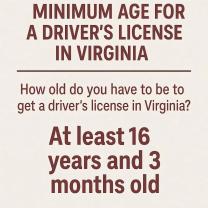Are federal student loans always better than private loans?
Not necessarily. The choice between federal and private student loans depends on various factors, and what may be the right choice for one person may not be the best for another. Here are some considerations to help you make an informed decision:
Advantages of Federal Student Loans:
Fixed Interest Rates:
- Federal student loans often come with fixed interest rates, providing predictability over the life of the loan. Private loans may offer variable rates that can change over time.
Income-Driven Repayment Plans:
- Federal loans offer income-driven repayment plans, where your monthly payments are based on your income. This flexibility can be especially helpful during periods of financial hardship.
Loan Forgiveness Programs:
- Federal student loans may qualify for loan forgiveness programs, such as Public Service Loan Forgiveness (PSLF), which forgives remaining debt after 120 qualifying payments for those working in eligible public service jobs.
Deferment and Forbearance Options:
- Federal loans typically offer more generous deferment and forbearance options, allowing borrowers to temporarily postpone or reduce their payments in times of financial difficulty.
No Credit Check (for most loans):
- Federal student loans do not require a credit check (except for Direct PLUS Loans), making them more accessible to borrowers with limited or no credit history.
Advantages of Private Student Loans:
Potentially Lower Interest Rates:
- Depending on your creditworthiness, private student loans may offer lower interest rates than federal loans. However, this varies, and borrowers with excellent credit may benefit the most.
Customizable Repayment Terms:
- Private loans often provide more flexibility in choosing repayment terms, allowing borrowers to customize their monthly payments based on their financial situation.
Cosigner Release:
- Private loans may offer the option for cosigner release after a certain number of on-time payments, enabling the borrower to assume full responsibility for the loan.
No Borrowing Limits:
- While federal loans have annual and lifetime borrowing limits, private loans may allow borrowers to access higher loan amounts, covering the full cost of attendance.
Considerations:
Interest Rates:
- Compare interest rates for federal and private loans. Federal loans may offer fixed rates, while private loans may have variable rates that can increase over time.
Repayment Terms:
- Consider the repayment terms and flexibility offered by both types of loans. Federal loans often have more favorable terms for borrowers facing financial challenges.
Loan Forgiveness and Assistance Programs:
- If you are considering public service or have a specific career path, check whether your profession qualifies for federal loan forgiveness programs.
Credit History:
- Private loans often require a credit check, and your credit history can impact the interest rate you receive. Federal loans do not rely on credit history.
Borrowing Limits:
- Assess your financial needs and determine if federal loan limits are sufficient. If you need additional funds, private loans may offer higher borrowing limits.
In summary, the decision between federal and private student loans depends on your individual circumstances, financial goals, and preferences. It's recommended to exhaust federal loan options first due to their borrower-friendly features, but private loans can be a viable option for some borrowers, especially those with excellent credit and specific financial needs.
Navigating the student loan landscape: Are federal loans always the better choice?
As students embark on their higher education journeys, they often encounter the complex world of student loans. With various loan options available, the choice between federal and private student loans can be challenging. While federal loans have traditionally been considered the better choice due to their favorable terms and borrower protections, private loans may offer certain advantages in specific situations.
Comparing Federal and Private Student Loans
Federal Student Loans
Benefits:
- Lower interest rates
- Flexible repayment plans
- Income-driven repayment options
- Deferment and forbearance options
- Loan forgiveness programs
Drawbacks:
- Lower loan limits
- Creditworthiness requirements
- Potential for delays in disbursement
Private Student Loans
Benefits:
- Higher loan limits
- Less stringent creditworthiness requirements
- Faster disbursement process
Drawbacks:
- Higher interest rates
- Fewer repayment options
- Limited or no borrower protections
Tips for Choosing the Right Type of Student Loan
Exhaust Federal Loan Options First: Before considering private loans, fully explore all available federal loan options. Federal loans generally offer more favorable terms and borrower protections.
Compare Interest Rates and Fees: Carefully compare interest rates and fees for both federal and private loans. The interest rate is a crucial factor that determines the overall cost of the loan.
Consider Repayment Plans and Forgiveness Programs: Evaluate the repayment plans and loan forgiveness programs offered by both federal and private lenders. Choose a plan that aligns with your financial situation and career goals.
Assess Creditworthiness: If considering private loans, assess your creditworthiness. Private lenders may have stricter credit requirements, and a good credit score can secure lower interest rates.
Seek Guidance from Financial Aid Counselors: Utilize the resources available at your school or community college. Financial aid counselors can provide personalized guidance and help you make informed decisions about student loans.
Involve Parents in the Decision-Making Process: If your parents are co-signing the loan, involve them in the decision-making process. Ensure they understand the terms and conditions of the loan and their potential financial obligations.
Borrow Only What You Need: Carefully assess your financial needs and borrow only the amount you truly need to cover education expenses. Excessive debt can burden your finances for years to come.
Research Lenders and Read Reviews: Before choosing a private lender, conduct thorough research and read reviews from other borrowers. Familiarize yourself with the lender's reputation, customer service, and complaint resolution process.
Understand Deferment and Forbearance Options: Familiarize yourself with deferment and forbearance options, which may provide temporary relief from loan payments under specific circumstances.
Explore Alternative Funding Options: Consider scholarships, grants, work-study programs, and other financial aid options to reduce reliance on student loans.
Remember, student loans are a significant financial commitment. Make informed decisions, choose wisely, and prioritize financial responsibility throughout your higher education journey.













